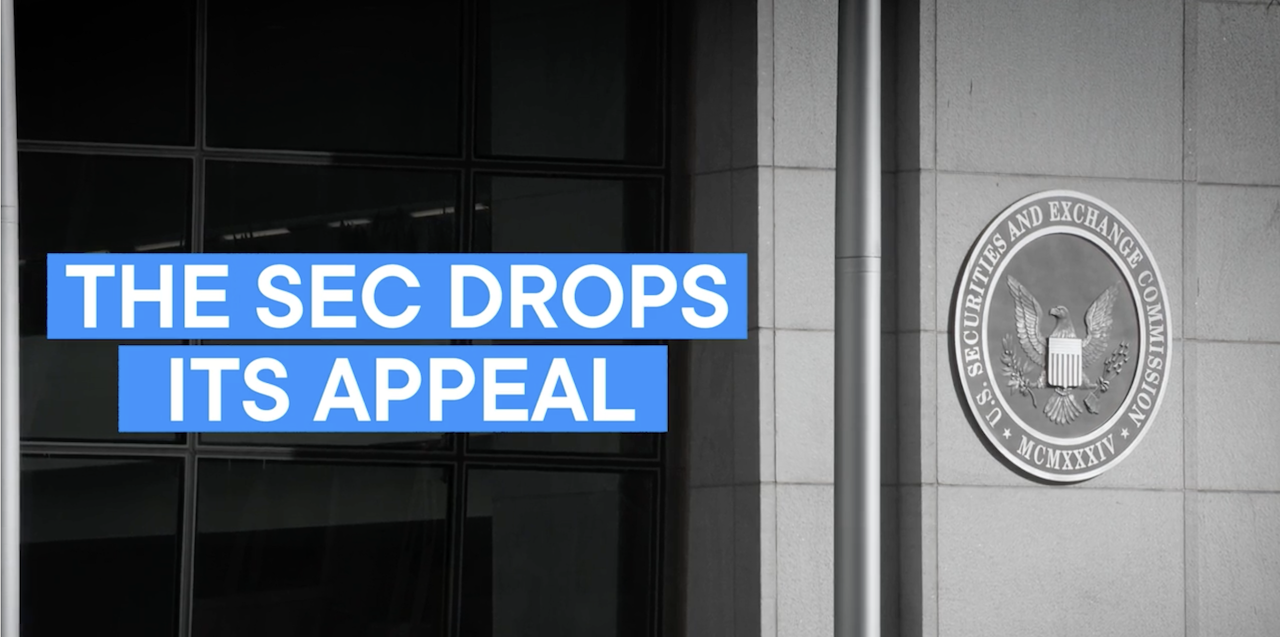
A Watershed Moment for Crypto: The Ripple Case Concludes
The long-running legal battle between Ripple Labs and the Securities and Exchange Commission (SEC) has finally come to a close, marking a potential turning point for the cryptocurrency industry. After a grueling four-year fight, the SEC has decided to drop its appeal, effectively ending the lawsuit and handing Ripple a decisive win. This decision carries significant implications, far beyond the immediate impact on Ripple itself.
The core of the SEC’s case revolved around the classification of XRP, Ripple’s native cryptocurrency. The agency argued that XRP sales constituted the unregistered sale of securities, violating federal laws. This contention, if upheld, would have had devastating consequences not only for Ripple, but for a vast number of other crypto projects operating under similar models. The ambiguity surrounding the definition of a “security” within the context of cryptocurrencies has been a persistent concern, leaving companies in a state of uncertainty and hindering innovation.
The SEC’s decision to forgo an appeal suggests a recognition of the complexities and nuances of the crypto space. The original court ruling, while not a complete victory for Ripple, provided a crucial framework for determining which XRP sales were considered securities and which were not. This distinction, while intricate, offers valuable precedent for future regulatory actions within the crypto ecosystem. It acknowledges that not all cryptocurrencies operate under the same principles, and a blanket approach to regulation might be unduly restrictive.
This outcome serves as a significant win for Ripple, allowing it to move forward without the overhang of protracted litigation. The company can now focus on its core business, pursuing innovation and potentially expanding its global reach. The financial burden of prolonged legal battles is substantial, and the removal of this pressure will undoubtedly allow Ripple to reinvest in its technology and operations.
The ripple effects (pun intended) of this decision extend far beyond Ripple’s own operations. For the wider crypto industry, this represents a major boost in confidence. The long-standing uncertainty around regulatory clarity has stifled growth and investment. The SEC’s decision, while not a complete legalization of all cryptocurrencies, represents a step towards a more nuanced and less hostile regulatory environment. It provides a clearer pathway for companies to navigate the legal landscape and potentially fosters greater investment in the sector.
However, it’s crucial to understand that this is not the final word on crypto regulation. The SEC’s decision to drop the appeal doesn’t necessarily set a universal precedent for all cryptocurrencies. Each project will likely be assessed on its individual merits and the specific circumstances surrounding its token sales. This necessitates a cautious approach from both crypto companies and regulators alike.
Moving forward, clearer guidelines and a more collaborative approach between regulators and the crypto industry will be essential. This landmark decision offers a unique opportunity for constructive dialogue, paving the way for a regulatory framework that balances innovation with investor protection. The crypto landscape is constantly evolving, and adaptable regulations will be key to fostering responsible growth and preventing future conflicts. The conclusion of the Ripple case signifies a significant step towards this goal, providing a crucial stepping stone in the ongoing conversation about the future of cryptocurrency regulation.



Leave a Reply